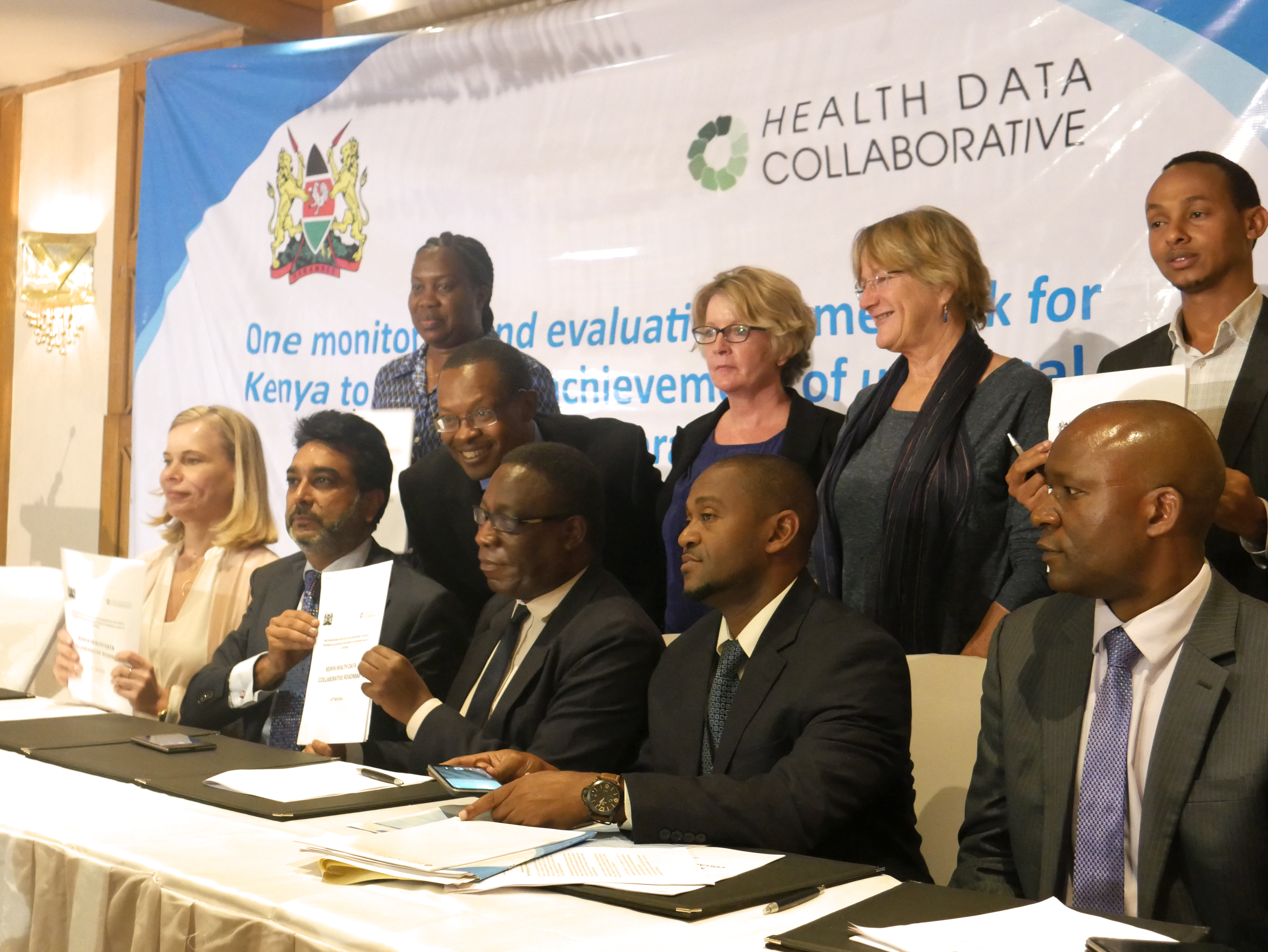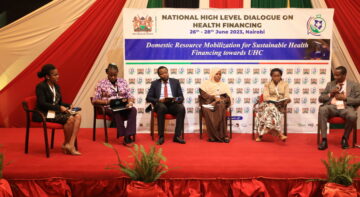Blogs

Delivery of universal health services continues to be hampered by the lack of capacity to access and utilise timely and robust data and research evidence to inform policies to help achieve universal access to health coverage. This issue came to the fore during a recent Health Data Collaborative (HDC) meeting convened by the Ministry of Health with a focus on Improving Measurement and Accountability in Kenya in the Sustainable Development Goals (SDGs) Era: The Global Health Data Mission.
The HDC emerged from the June 2015 meeting by leaders of global health agencies and participants at the Summit on Measurement and Accountability for Health held in Washington DC. The Summit endorsed the Health Measurement and Accountability Post 2015 Roadmap and Five Point Call to Action. The Call to Action identified a set of priority actions and targets that aim to strengthen country data accountability systems for the post-2015 SGDs agenda.
The meeting in Nairobi, which was held between May 17th and 19th, 2016, aimed to develop one monitoring and evaluation framework for Kenya’s health sector in order to accelerate achievement of the SDG on universal health coverage goal. The meeting culminated in the signing of a Communiqué on commitments to support One Monitoring and Evaluation Framework for Kenya. Those signing included the national government, through the Ministry of Health, county governments (represented by the Council of Governors), development partners, the Health Data Collaborative Mission, Faith-Based Organisations, the private sector and health NGOs Network of CSOs.
While giving his remarks during the opening session on May 19th, 2016, AFIDEP’s Executive Director, Dr. Eliya Zulu noted that part of the reason for the less-than-optimal use of data and research evidence is that many policy makers face persistent bottlenecks that hamper their ability to access, interpret, appraise, and use data and research evidence in policy making. He called for concerted efforts to address these barriers in order to ensure that development policies are informed by timely and robust data and research evidence. “Barriers to evidence use range from lack of institutional support or mechanisms to inculcate an evidence use culture and weak individual skills to access, appraise, synthesize and use the evidence.”
Dr Zulu called on the new data initiative to learn from and build on AFIDEP’s ongoing work aimed at strengthening institutional and individual capacity for evidence use within the Ministry of Health and Parliament in Kenya and Malawi. The programme is known as Strengthening Capacity to Use Research Evidence in Health Policy (SECURE Health).
He further underscored the role of strong health information systems in strengthening health systems. Additionally, he urged researchers to pay particular attention to generating evidence that makes the investment case for why African countries cannot achieve their long-term development goals and the SDGs if they do not invest in health. He noted: “The continent cannot realise its socio-economic transformation aspirations and harness the economic value of its demographic dividend if we do not concurrently prioritise investments in public health, empowerment of women, education and skills development, job creation, and the cross-cutting themes of effective governance and accountability in use of public resources and in service delivery.”
He commended the Ministry of Health for spearheading the Health Data Collective, which aims at enhancing Kenya’s health data capacity, stewardship and for partners to align their technical and financial commitments around strong nationally-owned health information systems and a common monitoring and evaluation plan. Dr. Zulu acknowledged that good progress has been made at both the Ministry of Health and Parliament in this regard. He noted that the formation of the Parliamentary Caucus on Evidence-Informed Oversight and Decision Making and the increasing demand for capacity strengthening in use of evidence in county governments, demonstrates that there is increasing demand for evidence-informed decision-making that researchers and other development partners should strive to address.
AFIDEP also works closely with the Ministry of Health together with the Consortium for National Health Research (CNHR) in convening the annual Research to Policy Dialogue to bridge gaps between producers and users of research evidence.
Agencies involved in bringing to fruition the One Monitoring and Evaluation Framework for Kenya included: USAID, the World Bank, UK Aid UN bodies “ UNICEF, UNFPA, UN AIDS and WHO. Others were GIZ, JICA, BMZ, CDC, EU, NORAD, GAVI, CHRESTRAD, IHP, PEPFAR; PHCPI, Rockefeller Foundation; the Global Fund; Bloomberg Philanthropies and City University of New York.
Related Posts





